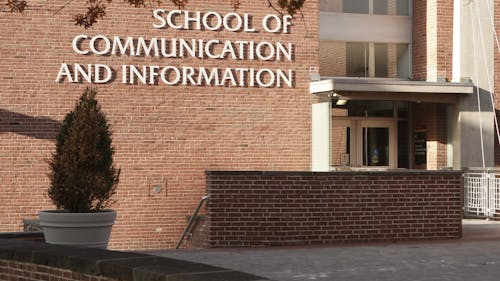Rutgers launches health communication certificate program

The Rutgers School of Communication and Information is offering a new Professional Health Communication Certificate starting this March, said Regina Efimchik, the school's director of Professional Development Studies.
She said health communication professionals research the best ways to reach the public and design educational campaigns based on that information. The program was created in response to the rising need for highly trained communication professionals due to the coronavirus disease (COVID-19) pandemic, according to the School of Communication and Information website.
The certificate program is similar to the Master of Health Communication and Information program that launched last month but is geared toward people who want to transition into the health communication field, with or without a master’s degree, Efimchik said.
“You can see people who are practitioners in healthcare who are now tasked with communicating messages. You can see people who started out in (public relations) or marketing communication who can switch into the healthcare field,” she said. “So there’s a lot of ways that this is really becoming a much more important field to get into.”
The program is designed so that working professionals may complete the coursework on their own schedule, spending typically 6 to 8 hours a week outside of their normal day job, she said. The courses combine pre-recorded instruction with live feedback from instructors, which Efimchik said allows for a complete comprehension of the coursework.
The first course, Health and Media Literacy, will take place from March 1 to March 28. It will focus on evaluating existing information and then creating messages to suit their intended audience from a variety of mediums, including television interviews and webinars, Efimchik said.
The course will be followed by Health Communication in the 21st Century in April. Other upcoming courses include Mediated Health Communications, Developing Successful Health Communication Campaigns, Best Practices for Interpersonal Healthcare Communication and Health Profession and Community Engagement.
Efimchik said health communication is particularly important right now due to the presence of misinformation and a lack of information regarding the COVID-19 pandemic and vaccines. She said she hopes the program will meet the needs of those who already have a master’s degree in a related field and those who are beginning to transition into health communication.
“If you’re interested in health communication as a concept, then ... we’re hoping that people who are switching into (this program are) people (who) are looking for a new field or people who now are tasked (with it due to) everything going on,” Efimchik said.



